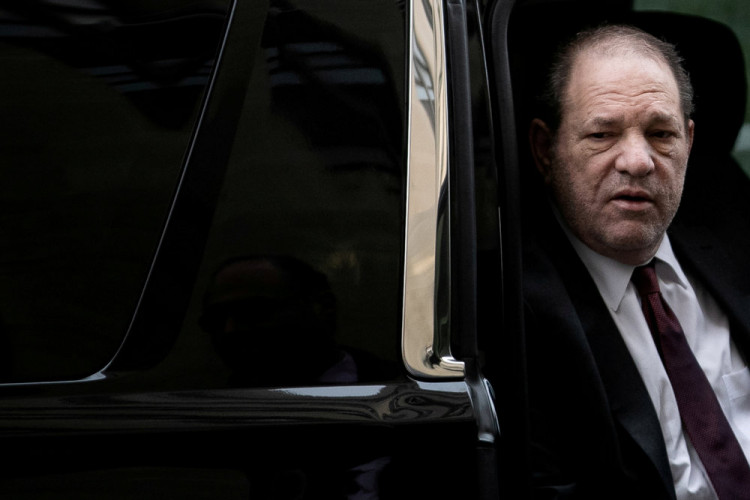UK prosecutors have decided to discontinue two indecent assault charges against Harvey Weinstein, the disgraced Hollywood producer whose legal battles have epitomized the global #MeToo movement. The Crown Prosecution Service (CPS) announced on Thursday that, after a thorough review of the evidence, it determined there was no longer a realistic prospect of securing a conviction against Weinstein, leading to the dismissal of the charges.
The charges, which stemmed from alleged offenses in London in 1996, were authorized by the CPS in 2022 following an investigation by the Metropolitan Police. The allegations involved a woman who was in her 50s at the time the charges were announced. However, the CPS's decision to drop the case reflects the challenges in prosecuting decades-old allegations, particularly in high-profile cases like Weinstein's, where legal complexities often intersect with public and media scrutiny.
"The CPS has a duty to keep all cases under continuous review, and we have decided that there is no longer a realistic prospect of conviction," said Frank Ferguson, head of the CPS's Special Crime and Counter-Terrorism Division. He emphasized that the decision was communicated to all involved parties and reiterated the importance of victims of sexual assault coming forward. "We would always encourage any potential victims of sexual assault to report to the police, and we will prosecute wherever our legal test is met," Ferguson added.
The decision to drop the charges was met with dismay by some of Weinstein's accusers, including British actor Lysette Anthony, who has been vocal about her allegations against Weinstein, claiming he assaulted her in her London home in the late 1980s. Anthony expressed her disappointment in an interview with The Guardian, highlighting the emotional and personal costs endured by women who have come forward with accusations against Weinstein.
"It has cost so much to so many women who have come forward, and we had every reason to hope for the best," Anthony said. She lamented what she perceives as the influence of well-funded legal teams and called for a reevaluation of the UK's legal framework concerning sexual assault and rape cases. "What has happened to me and others is just horrific," she added, while also praising individual police officers but expressing frustration with the broader legal system.
While Weinstein may have sidestepped the UK charges, his legal woes in the United States are far from over. The 72-year-old remains in custody at New York's Rikers Island jail complex, awaiting a retrial after his 2020 rape conviction in New York was overturned by the state's court of appeals in April. The court found that the trial judge had improperly admitted testimony that was deemed "irrelevant" and "prejudicial," thus necessitating a new trial.
Despite the overturning of his New York conviction, Weinstein must still serve a 16-year sentence handed down by a California court in 2022 for the 2013 rape of an actor in Los Angeles. Legal analysts suggest that Weinstein faces an uphill battle in overturning this conviction, though his legal team remains hopeful that the New York decision could positively influence his appeal in California.
Weinstein's downfall began in October 2017 when The New York Times published an exposé detailing decades of sexual harassment allegations against him. The article triggered a wave of accusations from women across the globe and catalyzed the #MeToo movement, which has since led to widespread recognition of sexual harassment and assault in various industries.
Weinstein was a towering figure in Hollywood, co-founding Miramax in 1979 and later producing some of the most iconic films of the 1990s and 2000s. His influence in the entertainment industry was immense, and his subsequent criminal convictions have marked one of the most dramatic falls from grace in recent history.
The legal proceedings against Weinstein have been hailed as pivotal moments in the #MeToo movement. His convictions in New York and California were celebrated as significant victories, offering hope to countless survivors of sexual assault. However, the dismissal of charges in the UK highlights the ongoing challenges in prosecuting historical sexual assault cases, especially when evidence is limited or contested.





